|
Washington, DC (April 30, 2024) – The Journal of Science Policy & Governance (JSPG) is pleased to release Volume 24, Issue 01, the 2024 winter standard issue of the journal. “With 17 articles, this is our second largest issue ever, and it provides a terrific showcase for the urgent and wide-ranging challenges facing society today. These publications highlight how thoroughly science intersects with policy, with topics like genetic testing databases used by law enforcement, the influence of misinformation on clean energy transitions, and more. We’re thrilled to continue growing the international network of JSPG, with subjects and authors representing Australia, Canada, France, the Netherlands, Norway, Switzerland, and beyond” said Andy Sanchez, JSPG Editor-in-Chief. The winter standard issue includes seventeen articles addressing topics that range from deep sea mining and hydraulic fracking, clean energy production, invasive plants, maternal morbidity, PFAS-based fish consumption, and plastic consumption. “The near-record-breaking number of submissions for this issue is a testament to the growing interest in science and technology policy and governance among students, fellows, and early career researchers and professionals,” said Julianne McCall, JSPG CEO & Managing Publisher. “A glance at any news headline reminds us of the enormity of the challenges facing societies worldwide, and we are proud to attract this cohort of authors for timely recommendations, awareness, and solutions.” ### ABOUT JSPG
The Journal of Science Policy & Governance is an open-access peer-reviewed publication dedicated to elevating students, post-docs, policy fellows and young scholars in science, technology, and innovation policy and governance worldwide. JSPG publishes articles for audiences in policymaking settings. Since 2011, JSPG has served as a publication and training platform for students and early career professionals to orient their scientific approach toward issues in science policy. Visit sciencepolicyjournal.org and follow on social media (LinkedIn and X). Media contacts
National Science Policy Network Meredith Schmehl [email protected] Journal of Science Policy & Governance André Porter [email protected] Washington, DC (April 13, 2024) –The Journal of Science Policy & Governance (JSPG) and the National Science Policy Network (NSPN) are pleased to partner on the 2024 JSPG Summer Standard Issue. We invite students, postdocs, policy fellows, early career researchers, and early-stage professionals in science and technology policy to submit articles in all formats published by JSPG to the Summer Standard Issue. Following peer review by the JSPG Editorial Board, published authors will have the opportunity to participate in networking events, media engagement, and other programs. Submission deadline: May 26, 2024. The 2024 Summer Standard Issue aims to generate and amplify the next generation's policy ideas and put them into action. This issue encourages submissions that highlight policy opportunities and audiences that center on justice, equity, diversity, and inclusion. Leading up to the submission deadline, JSPG and NSPN will organize a series of events to help prospective authors improve their submissions to the Summer Standard Issue, including one writing workshop and two virtual expert panels. See event details on the JSPG-NSPN Summer Standard Issue Events Webpage. ### ABOUT JSPG
The Journal of Science Policy & Governance (JSPG) is an international, open-access peer-reviewed publication managed by and for students, policy fellows, and young scholars in science, technology, and innovation policy. JSPG publishes high-quality articles covering the widest range of topics in formats that are accessible to policymakers. Since 2011, JSPG has served as a vehicle for students and early career researchers to bolster their research and writing credentials in science policy. Visit https://www.sciencepolicyjournal.org/ and follow on Twitter @SciPolJournal to learn more. ABOUT NSPN The National Science Policy Network (NSPN) is a non-profit representing early career science policy, advocacy, and diplomacy groups distributed across the country, focused on providing a platform for sharing resources, building relationships, and training the next generation of scientists and engineers to be pivotal voices in all levels of policy making.. Visit scipolnetwork.org and follow on Twitter @scipolnetwork to learn more. Media Contacts
Sigma Xi Jason Papagan - [email protected] Rita Allen Foundation Randi Chmielewski - [email protected] Journal of Science Policy & Governance Andre Porter - [email protected] Washington, DC (March 19, 2024) – The Journal of Science Policy & Governance (JSPG), Sigma Xi, and the Rita Allen Foundation are proud to announce the release of Volume 23, Issue 02, the journal’s first Special Topics Issue of 2024, on Civic Science for Transformative Policy Solutions to Societal Challenges. “It is energizing to see the civic science ideas advanced by the emerging leaders contributing to this issue—part of a new generation lighting paths toward a future where science, communities, philanthropy, and policy better connect to expand benefits for all,” said Elizabeth Christopherson, President and CEO of the Rita Allen Foundation. “We’re pleased to collaborate with Sigma Xi and JSPG to present this opportunity for sharing insights from these pilot programs, systems analyses, and calls for policy change, sparking inspiration for new innovation.” In the seven published articles, authors in this special issue of JSPG highlight novel funding mechanisms to increase community engagement, support for evidence synthesis and access to preprints, ways to utilize cross-department structures to facilitate transdisciplinary stewardship models, a blueprint for inserting relational infrastructure to grow community engagement, the need for increasing diversity of congressional staffers in the United States, and how funding announcement language can encourage deeper connections to local communities. ‘JSPG is thrilled to help our authors contribute to the ongoing debate and definition of civic science. These articles, collectively, make an undeniable argument for the mutual exchange necessary for meaningful civic science. Further, our authors highlight and challenge the many institutional barriers preventing such a reciprocal, equitable dynamic between science and the public. It’s inspiring to see our authors expand ongoing debates in energy transition, clinical trials, and more with the utility and impact of civic science,” said Andy Sanchez, JSPG Editor-in-Chief. Published articles were entered into a competition judged by an external review committee. The journal and the special issue partners are proud to provide first-, second-, and third-place winners with monetary awards. The winners of the JSPG, Sigma XI, and Rita Allen Foundation competition for the Special Topics Issue are as follows: First Place: Promoting Transparent, Fair, and Inclusive Practices in Grantmaking: Lessons from the Open and Equitable Model Funding Program — (Eunice Mercado-Lara, Greg Tananbaum, Erin C. McKiernan) Second Place: Community-Driven Civic Science: Relationship Building to Prioritize Public Needs — (Kristine Lu, Colleen O’Brien, Grace Wickerson) Rethinking Civic Science Funding to Better Support Community Engagement — (Andrea Isabel López, Mónica I. Feliú Mójer) Third Place: From Intent to Impact: Enabling Transdisciplinary Research for Responsible Scientific Stewardship — (Wilson R. Sinclair) We thank competition reviewers for their efforts and greatly appreciate their input towards selecting the winners: Karen Akerlof (George Mason University), Melissa Varga (Union of Concerned Scientists), Russ Campbell (Burroughs Wellcome Fund), Hallie Thompson (Radicle), Elena Denia (Tufts University), and Christian Ross (Civic Science Consultant). “The seven articles competitively selected for this issue demonstrate a wide range of timely topics significant to the evolution of the field of civic science,” said Julianne McCall, JSPG CEO & Managing Publisher. “Stretching research from the vacuum of laboratories into real-world settings has not only compelled academics to apply and develop more sophisticated methods of studying and drawing insights but also enhanced our ability as a society to work collectively to tackle the most pressing and pervasive challenges. For our first issue of 2024, during a time of difficulty and uncertainty, we could not have partnered with more meaningful organizations as Sigma Xi and the Rita Allen Foundation to deliver these messages of brilliant, structural, and hopeful solutions.” This Special Issue is supported in kind by outreach partners from Advancing Research Impact in Society (ARIS), the Union of Concerned Scientists (UCS), Engineers and Scientists Acting Locally (ESAL), and the California Council on Science and Technology (CCST). ### About JSPG
The Journal of Science Policy & Governance (JSPG) is an international, open-access peer-reviewed publication managed by and for students, policy fellows, and young scholars in science, technology, and innovation policy. JSPG publishes high-quality articles covering the widest range of topics in formats that are accessible to policymakers. Since 2011, JSPG has served as a vehicle for students and early career researchers to bolster their research and writing credentials in science policy. Visit https://www.sciencepolicyjournal.org/ and follow on Twitter @SciPolJournal to learn more. About Sigma Xi Sigma Xi, The Scientific Research Honor Society, founded in 1886, is the world’s largest multidisciplinary honor society exclusively for scientists and engineers. The Society’s mission is to enhance the health of the research enterprise, foster integrity in science and engineering, and promote the public understanding of science for the purpose of improving the human condition. Over 500 Sigma Xi chapters can be found wherever scientific research is undertaken at colleges, universities, government laboratories, and industry research centers worldwide. Among our 100,000 inductees, more than 200 are Nobel Prize winners. The Society is based in the Research Triangle Park, North Carolina. Visit https://www.sigmaxi.org/ and follow on Twitter @SigmaXiSociety to learn more. About Rita Allen Foundation The Rita Allen Foundation is a venture philanthropy organization that invests in transformative ideas in their earliest stages to leverage their growth and promote breakthrough solutions to significant problems. The Foundation is developing new investments, research, and coalitions to strengthen civic science as a growing field of study and area of practice committed to ensuring that all people shape and benefit from science, technology, and innovation. In addition, the Foundation invests in early-career biomedical scholars to do pioneering research, seeds innovative approaches to fostering informed civic engagement, and develops knowledge and networks to build the effectiveness of the philanthropic sector. We embrace learning through experimentation, network-weaving, bridge-building, and knowledge-sharing to advance the civic potential of diverse communities; philanthropy; science, and technology for the public good. Visit https://ritaallen.org/ and https://civicsciencefellows.org or follow on LinkedIn to learn more. About ARIS The Center for Advancing Research Impact in Society (ARIS) works with U.S. and international scientists and engagement practitioners to build capacity, advance scholarship, grow partnerships and provide resources to help them engage with and demonstrate the impact of research in their communities and society. The work of the center is beneficial to researchers who increase knowledge and discovery, to practitioners who collaborate with researchers and community stakeholders, and to the public who benefit from research and education advancements. ARIS is home to a thriving community of practice including more than 1,000 members. Visit https://researchinsociety.org/ and follow on Twitter @arisimpacts to learn more. About UCS The Union of Concerned Scientists is a national nonprofit organization founded more than 50 years ago by scientists and students at the Massachusetts Institute of Technology.Its mission is to use rigorous, independent science to solve our planet's most pressing problems. Joining with people across the country, we combine technical analysis and effective advocacy to create innovative, practical solutions for a healthy, safe, and sustainable future. Visit ucsusa.org and follow on Twitter @UCSUSA to learn more. About ESAL Engineers and Scientists Acting Locally (ESAL) is a national organization dedicated to increasing local civic engagement by people with backgrounds in science, technology, engineering, and mathematics (STEM). Visit https://esal.us/ and follow on Twitter @ESAL_us to learn more. About CCST The California Council on Science and Technology is a nonpartisan, nonprofit organization established via the California State Legislature in 1988. We engage leading experts in science and technology to advise State policymakers, ensuring that California policy is strengthened and informed by scientific knowledge, research, and innovation. Visit https://ccst.us/ and follow on Twitter @CCSTorg to learn more. Media contact
Washington, DC (October 23, 2023) – The Journal of Science Policy & Governance (JSPG) is pleased to release Volume 23, Issue 01, the 2023 standard summer issue of the journal. “This journal issue features articles which supply robust and insightful analyses on a wide variety of relevant, impactful policy issues, ranging from maternal mental health care to bolstering the bioeconomy workforce through improvements in experiential learning. I am proud of the effort and contributions supplied by both authors and editors alike,” said Dilara Kiran, JSPG Assistant Editor-in-Chief. “The summer standard issues at JSPG showcase the incredible breadth of science policy, and this issue is no exception. These ten articles highlight several key areas where science can have an impact in policy or daily life. I’m very proud of the work our authors, editors, and staff have put in to make this issue a success,” said Andy Sanchez, JSPG Editor-in-Chief. The summer standard issue includes ten articles addressing a range of topics, including access to drinkable water for the unhoused, reducing harmful algal blooms in the U.S. Great Lakes, climate change induced migration, marine management, clinical trial data transparency, reproductive equity, and setting a path forward for U.S. low earth orbit activities. “On behalf of the journal, we are proud to showcase the work and ingenuity of 34 international authors in this issue, targeting critical and timely matters from space policy to medical regulations to human rights and more. Articles extend the research-to-action pipeline a step further with evidence-based analyses and recommendations around challenges from the state to global level, leveraging vantage points from academic, nonprofit, private, and public sectors. As ever, the diversity of our authors’ perspectives strengthens the concepts highlighted in this issue and advances policy conversations toward sustainable and equitable solutions.” said Julianne McCall, JSPG CEO & Managing Publisher. ### ABOUT JSPG
The Journal of Science Policy & Governance is an open-access peer-reviewed publication dedicated to elevating students, post-docs, policy fellows and young scholars in science, technology, and innovation policy and governance worldwide. JSPG publishes articles for audiences in policymaking settings. Since 2011, JSPG has served as a publication and training platform for students and early career professionals to orient their scientific approach toward issues in science policy. Visit sciencepolicyjournal.org and follow on social media (LinkedIn and X). The Governing Board of the Journal of Science Policy & Governance named Julianne McCall, PhD, as the new chief executive officer and managing publisher, effective September 18, 2023. McCall succeeds Adriana Bankston who served as CEO since 2021 and transitioned to a Strategic Advisor role last month. Read Bankston’s farewell message. McCall serves the California Governor’s Office of Planning and Research as Director of Precision Medicine. She joined the staff of JSPG in February 2022 as Director of Programs and Events and brings publishing experience as a member of the Editorial Board of the California Journal of Politics and Policy, past Editor of the German Fulbright Association annual publication, The FRANKly, and author of several science policy reports, including the first-ever California Surgeon General’s Report, the California Senate Report “Optimizing Public Benefits of State-Funded Research,” and “Science Policy: A Career Guide to Policy Careers for Scientists”. Following 16 years of conducting neuroscience research, most recently at Heidelberg University in Germany, McCall assumed roles in science policy beginning in 2016, including a fellowship with the California Council on Science and Technology and leading public health and research policy for the California Senate Office of Research. In the community, McCall has held numerous posts in science outreach, STEM education, and community engagement, including as founder of neuroscience olympiads, Director of the International Brain Bee World Championship, and co-founder of TEDxFulbright. She also teaches graduate courses and professional science and technology policy programs, including at the University of California Davis, the University of California Riverside, and the Japan-US Science Communications and Policy Fellowship Program. “Like the three extraordinary CEOs before me who built and led the journal to its current international standing, I feel fortunate to be joined in this effort by a team of dedicated and stunningly talented staff and editors in carrying forward the journal’s significant work to elevate science and technology policy solutions for local to global challenges,” said McCall. “The world is changing before our eyes, and scientists and engineers have never been more needed in decision-making spaces to anchor and guide societal advances with evidence and equity at the forefront. I’m excited to help shepherd policy concepts, particularly from early career STEM professionals and students, which not only apply data-driven insights but also acknowledge and account for the complexities of diverse communities in which public investments take shape and impact lives.” The full JSPG leadership team will be engaged over the months ahead in developing a strategic plan to expand the journal’s presence internationally, foster additional capabilities for published authors to bridge the divide between policy research and policy change, and continue to build upon world-class partnerships to generate and drive solutions to our era’s most pressing challenges. ### About JSPG
The Journal of Science Policy & Governance is an open-access peer-reviewed publication dedicated to elevating students, post-docs, policy fellows and young scholars in science, technology, and innovation policy and governance worldwide. JSPG publishes articles for audiences in policymaking settings. Since 2011, JSPG has served as a publication and training platform for students and early career professionals to orient their scientific approach toward issues in science policy. Visit sciencepolicyjournal.org and follow on social media (LinkedIn and X). The beginnings
In 2018, while transitioning into science policy and starting to learn more about the field, I was selected as Director of Communications & Outreach for JSPG. This role proved instrumental in understanding the journal’s communication and public relations, and social media and marketing strategies, which are critical to running a digital publication with global reach. In 2020, I was promoted to JSPG’s Chief Outreach Officer, where I understood the role that outreach played to raise awareness of the journal in relevant science policy circles, target specific communities, and seek opportunities to highlight published authors. In large part, I attribute my success as JSPG CEO to having gained a solid understanding of the critical role that communication and outreach play for publication submissions and highlighting published authors. Still, nothing could have prepared me for the privilege and responsibility I would feel to our authors, editors, ambassadors, advisors and to the entire science policy community, to do well as the third CEO. Building on the foundation Being the CEO of JSPG for the past two years has been a great honor and taught me so much. I am grateful to have worked with fantastic colleagues and advisors, and to learn from those smarter than me, both in terms of policy knowledge and business skills. This role allowed my creative and entrepreneurial personality to flourish, and taught me what servant leadership means. I am thankful to those who came before me for creating this space for the next generation to publish their policy research, and for building a solid foundation upon which to build what will now become my legacy. When I took over as JSPG CEO, the appetite for science policy among the young generation had been steadily growing. Staying true to our mission, I chose to say yes to opportunities that would help the organization grow in specific strategic areas, while continuing to find ways to expand in new directions. I am proud of the achievements we had over the past two years, which exceeded my expectations of what was possible at the start. Taking on the challenge I am grateful for the opportunity to leave a mark on the journal and to shape it based on my own beliefs and desired directions, and for the support I received along the way. This role has become an integral part of my professional identity and gave me a chance to spread my wings, discover what I was capable of, and push a little beyond that every day to see how far we could go. But I did not always have it all figured out. In fact, I almost didn’t apply for the CEO role. It seemed beyond my reach and I didn’t think I could do it well. But I decided to try anyway. The interview process had several rounds. To my surprise, I passed all the rounds and was offered the position. Once in this role, there were times when I didn’t feel brave for having taken it on, or when I didn’t know what the right answer was. I learned to trust my gut and intuition and keep going, to always continue innovating, and to ask for advice from trusted peers and advisors when needed. Examples of growth The journal’s published issues have continued to grow and remain timely and relevant in a number of areas in science policy and governance.
Examples of innovation The journal has expanded nationally and internationally into specific policy spaces through outreach, programs, and innovative partnerships.
Examples of impact These innovative developments allowed us to showcase the policy impact achieved by published authors, including the journal’s alumni and others in the community.
Acknowledgements At the conclusion of my tenure as JSPG CEO, I would like to thank everyone who has supported our mission since the beginning, and those who continue to promote our initiatives. Thank you to those who submitted to the journal in the past few years for giving us the opportunity to celebrate your contributions in various ways. Thank you to our staff, senior advisors, editorial leadership, associate editors, competition reviewers, ambassadors, governing and advisory board members for believing in our mission. Finally, thank you to our many (and growing) partners and sponsors who continue to bring their expertise and enthusiasm to the journal and elevate published work and authors. Future directions As Strategic Advisor for JSPG, I will seek to provide guidance and lend my expertise to support future leadership in the next phase of the journal, while continuing to engage with the broader science policy community. Additionally, I look forward to leveraging the lessons learned and knowledge gained as JSPG CEO to continue growing my own impact and influence in the field through other roles that seek to develop the next generation of leaders in science policy and governance. With much gratitude, Adriana Bankston JSPG CEO & Managing Publisher Media Contacts
American Physical Society (APS) Forum on Physics and Society Henry Kelly [email protected] Journal of Science Policy & Governance Andre Porter [email protected] Washington, DC (September 11, 2023) – The Journal of Science Policy & Governance (JSPG) and the American Physical Society Forum on Physics and Society (APS FPS) are proud to announce the release of Volume 22, Issue 03, the journal’s third Special Topics Issue of 2023, on Policy and Governance on Science, Technology and Global Security. "New technologies are creating a new set of threats to global security and potentially a new set of solutions. The authors of these articles have used their backgrounds in science and engineering to help us understand these new threats and propose a creative array of solutions," said Henry Kelly, Past Chair of the American Physical Society Forum on Physics and Society. In the 7 published articles, authors in Volume 22, Issue 03 of JSPG investigate topics in food system resilience, semiconductor export controls, recommendations for governments to address future technology changes, the impact of counterfeit personal protective equipment supply systems, and evaluating the nuclear command control system’s efficacy in the 21st century. The Special Issue competition, judged by an external review committee, aims to provide writers of the winning articles with opportunities to present published work at events hosted by the APS Forum on Physics and Society. The committee selected Future-proof: Monitoring the development, deployment, and impacts of Artificial Intelligence as the outstanding article winner for the Special Issue. We thank competition reviewers for their efforts and greatly appreciate their input towards selecting the winners: David Hart (George Mason University), Fredrick K. Lamb (University of Illinois at Urbana-Champaign), Morgan Livingston (Tsinghua University), Michael Stebbins (Science Advisors, llc), and Sri Vedachalam (Corvias Infrastructure Solutions). . “National security is a matter of critical importance in science policy today and a highly discussed topic in current times,” said Adriana Bankston, JSPG CEO & Managing Publisher. “JSPG is proud to partner with the American Physical Society Forum on Physics and Society on this special issue and to showcase early career views in policy development and implementation to address national security challenges.” This Special Issue is supported in-kind by outreach partners from the American Physical Society Forum on Early Career Scientists (APS FECS) and the Schar School of Policy and Government, George Mason University. APS is a sponsor and is not responsible for the content of the special issue. ### About JSPG
The Journal of Science Policy & Governance (JSPG) is an international, open-access peer-reviewed publication managed by and for students, policy fellows, and young scholars in science, technology, and innovation policy. JSPG publishes high-quality articles covering the widest range of topics in formats that are accessible to policymakers. Since 2011, JSPG has served as a vehicle for students and early career researchers to bolster their research and writing credentials in science policy. Visit sciencepolicyjournal.org and follow on Twitter @SciPolJournal to learn more. About APS FPS The American Physical Society’s Forum on Physics and Society (FPS) is a forum of the American Physical Society, organized in 1971 to address issues related to the interface of physics and society as a whole. Founded in the late 1960s, FPS has been active in exploring policy issues such as nuclear weapons and nonproliferation, autonomous weapons, environmental challenges, and cybersecurity. It has also been active in exploring ways to encourage equity and inclusion in the physics community. Visit https://engage.aps.org/fps/home to learn more. About APS FECS The APS Forum for Early Career Scientists (FECS) was established in 2016 to enhance APS's ability to meet the needs of early career scientists and promote career path development, as well as foster scientific communication and cooperation between early career scientists working in different fields all over the world. FECS is focused on serving scientists working in the early stages of their careers, especially recent graduates, postdocs, and junior faculty, but welcomes membership from all career stages. Visit https://engage.aps.org/fecs/home to learn more. About the Schar School of Policy and Government at George Mason University George Mason University’s Schar School of Policy and Government prepares undergraduate and graduate students to be leaders and managers who solve problems and advance the public good in all sectors and levels of government—in the United States and throughout the world. Located where policy happens—just 3 miles from the Pentagon, 4 miles from the White House, and 6 miles from the U.S. Capitol Building—students are connected to jobs, internships, networking, and experiences that can only be found in the Washington, D.C., area. Visit see: https://schar.gmu.edu and follow on Twitter @ScharSchool to learn more. MEDIA CONTACTS
Washington, DC (July 6, 2023) – JSPG CEO Adriana Bankston was recently named to the National Small Business Association (NSBA) Leadership Council. In addition to her role with JSPG, Bankston is Founder & CEO of Bankston Policy Consulting, a consulting firm based in Washington, D.C. that empowers students and early career researchers to impact policy at all levels of government. NSBA is the nation’s oldest small business advocacy organization, and operates on a staunchly nonpartisan basis. As a recognized leader in science policy and advocacy, and more recently among the small business community, Bankston joins the NSBA Leadership Council alongside other advocates from across the country to promote the interests of small businesses to policymakers in Washington, D.C. The NSBA Leadership Council engages with Congress, the administration, state and local government and the media, and provides valuable networking opportunities. “I look forward to showcasing the role that small businesses play in fostering future scientific and technological innovations driven by the next generation and building a robust workforce to help maintain our nation’s economic growth and competitiveness,” said Bankston. Bankston joined the NSBA Leadership Council as part of her efforts to tackle critical issues facing small businesses. These include the need for improving workforce access, training and skills development, addressing the labor shortage and reforming the U.S. immigration system to enable small businesses nationwide to continue innovating across sectors. “I am proud to have Adriana Bankston as part of our Leadership Council,” NSBA President and CEO Todd McCracken said. “She came to us highly recommended and I look forward to our coordinated efforts for years to come.” Bankston Policy Consulting provides a variety of services to stakeholders and individuals invested in and working towards building the next generation STEM workforce through policy change across a number of industries within the science, technology and innovation ecosystem. Click here to learn more about the firm. For more on the NSBA, please visit www.nsba.biz. ###
Media Contacts
Inter-American Institute for Global Change Research Kim Portness [email protected] Journal of Science Policy & Governance Andre Porter [email protected] Washington, DC (June 26, 2023) – The Journal of Science Policy & Governance (JSPG) and the Inter-American Institute for Global Change Research (IAI) are proud to announce the release of Volume 22, Issue 02, the journal’s second Special Topics Issue of 2023, on Development Policy and Global Change Science to Achieve the Vision of Sustainable Americas. “We hope this special issue highlights the brand of inclusive and collaborative leadership being nurtured in Latin America and the Caribbean that will help articulate a vision of how our hemisphere can assume greater leadership in the international decision-making space and more forcefully articulate its priorities and needs. The recommendations and insights from the early-career authors published in this issue, as leaders and agents of change, should be shared with local, national and international organizations as positive examples of how to achieve a vision of a sustainable Americas,” said Marcos Regis Da Silva, Executive Director, Inter-American Institute for Global Change. In the 7 published articles, authors in this special issue of JSPG highlight several themes that include science diplomacy, sustainability, ocean pollution, youth centered climate solutions, public policy for plastic pollution regulation, and stakeholder engagement in the measurement and best practices necessary to ensure a sustainable supply chain for lithium electric vehicle batteries. Authors published in the Special Topics Issue will present in two hybrid panels during the Sustainability Research + Innovation 2023 conference in South Africa. On Monday, June 26, the panel will discuss how to foster dialogue on the mechanisms, barriers, and changes needed to strengthen youth voices from the Americas in global climate change fora and negotiations. On Friday, June 30, the panel will describe policy research published in this special issue, facilitate broader conversations around development policy and global change science, and build the next generation of policy leaders. “As the science policy and diplomacy landscape is becoming increasingly international in a number of areas, including the climate and the environmental space, is it imperative to include a variety of perspectives from the next generation in decision-making towards ensuring a better future,” said Adriana Bankston, JSPG CEO & Managing Publisher. “JSPG is proud to partner with Inter-American Institute for Global Change Research on this special issue and to showcase early career views in developing policies to achieve the vision of sustainable Americas.” This Special Issue is supported in-kind by outreach partners from the Belmont Forum and SRI Congress. ### About JSPG
The Journal of Science Policy & Governance (JSPG) is an international, open access peer-reviewed publication managed by and for students, policy fellows, and young scholars in science, technology, and innovation policy. JSPG publishes high-quality articles covering the widest range of topics in formats that are accessible to policymakers. Since 2011, JSPG has served as a vehicle for students and early career researchers to bolster their research and writing credentials in science policy. Visit https://www.sciencepolicyjournal.org/ and follow on Twitter @SciPolJournal to learn more. About IAI The Inter-American Institute for Global Change Research (IAI), an intergovernmental organization with 19 Parties in the Americas, promotes transdisciplinary research and the enhancement of capacities to improve public awareness and provide information to governments for the development of public policy relevant to global environmental change, based on scientific excellence, international and intersectoral cooperation, and the open exchange of knowledge. Visit https://www.iai.int/ and follow on Twitter @IAI_news to learn more. About the Belmont Forum Established in 2009, the Belmont Forum is a partnership of funding organizations, international science councils, and regional consortia committed to the advancement of transdisciplinary, societally relevant, research. Forum operations are guided by the Belmont Challenge, a vision document that encourages international transdisciplinary research providing knowledge for understanding, mitigating and adapting to global environmental change. Forum members and partner organizations work collaboratively to meet this Challenge by issuing international calls for proposals, committing to best practices for open data access, and providing transdisciplinary training. Since its establishment, the Forum has successfully led 19 calls for proposals, supporting 134 projects and more than 1,000 scientists and stakeholders, representing over 90 countries. Visit https://www.belmontforum.org/ and follow on Twitter @Belmont_Forum to learn more. About SRI The Sustainability Research & Innovation Congress (SRI) is a transdisciplinary gathering in sustainability – a space of dynamic advocacy for sustainability scholarship, innovation, collaboration, and action. A collaboration of the Belmont Forum and Future Earth, SRI is a unique opportunity for diverse audiences to connect with the global sustainability community, learn and contribute to the latest sustainability science, create novel networks and partnerships, explore new ideas, gain visibility, inspire, and be inspired. SRI2023 will be co-hosted by the Secretaría Nacional de Ciencia, Tecnología e Inovación (SENACYT) and the IAI in Panama City, Panama. Visit sricongress.org and follow on Twitter @SRICongress to learn more. JSPG CEO speaks at White House OSTP listening session on Open Science Training and Capacity Building6/12/2023
MEDIA CONTACT
Washington, DC (June 12, 2023) – JSPG CEO Dr. Adriana Bankston provided remarks during the 4th listening session of The White House Office of Science and Technology Policy (OSTP) on Open Science Possibilities for Training and Capacity Building: Perspectives from the Early Career Researcher-Supporting Community. This session was part of a series of events exploring perspectives on the challenges and opportunities for advancing open science in the U.S. and solutions that might be implemented by the government. View more details about the series from the OSTP Year of Open Science. During this session, Dr. Bankston addressed the following points:
During her remarks, Dr. Bankston highlighted the special issue on open science policy with UNESCO published last year, as an example of how trainees are driving the future of open science. The special issue addressed multiple facets of this topic, including open science practices, incentives, data, infrastructure, international cooperation and citizen science. She urged the audience to read this special issue to learn what the next generation is saying about this topic. To conclude, Dr. Bankston expressed her hopes that JSPG can be a mechanism by which to help overcome systemic barriers for trainees within universities by providing them with opportunities to publish and have training resources from outside the university. In the light of this session, Dr. Bankston's hope is that the federal government can support nonprofit journals and publications that develop capacity for the next generation, encourage academic systemic change and foster cross-sector collaborations to ensure their success but also train the next generation in this area. Dr. Fanuel Muindi interviews Dr. Adriana Bankston on her impressions from the OSTP Listening Session on Open Science Training and Capacity Building for SAi TV. Dr. Bankston then spoke with Dr. Fanuel Muindi, Chief Resident at STEM Advocacy Institute, about her takeaways from this listening session, as well as how JSPG strategically engages in partnerships for special issues such as with UNESCO. She also mentioned the newly released call for papers for a special issue on Civic Science for Transformative Policy Solutions to Societal Challenges co-sponsored by Sigma Xi and the Rita Allen Foundation. This call for papers is relevant to the topic at hand given the importance of open access to scientific knowledge and data in order for the next generation to participate in effective public engagement and bridge the gap between science and society through their publications. ### About JSPG
The Journal of Science Policy & Governance (JSPG) is an international, open access peer-reviewed publication managed by and for students, policy fellows, and young scholars in science, technology, and innovation policy. JSPG publishes high-quality articles covering the widest range of topics in formats that are accessible to policymakers. Since 2011, JSPG has served as a vehicle for students and early career researchers to bolster their research and writing credentials in science policy. Visit sciencepolicyjournal.org and follow on Twitter @SciPolJournal to learn more. |
JSPG NewsAll the latest news from the Journal of Science Policy & Governance. Archives
April 2024
Categories
All
|
- Home
- About
-
Volumes
- Volume 24 Issue 01
- Sigma Xi and Rita Allen Foundation - Civic Science for Transformative Policy Solutions to Societal Challenges
- Volume 23 Issue 01
- APS Policy and Governance on Science, Technology and Global Security
- IAI Development Policy and Global Change Science to Achieve the Vision of Sustainable Americas
- Volume 22 Issue 01
- GHFUTURES2030 Strengthening Youth-centered Policy and Governance of Digital Transformations in Health.
- UNESCO AND MGCY OPEN SCIENCE POLICIES AS AN ACCELERATOR FOR ACHIEVING THE SUSTAINABLE DEVELOPMENT GOALS
- Volume 21 Issue 01 >
- JSPG and UCL STEAPP Special Topics: Innovations in Science Diplomacy >
- Sigma XI-JSPG Special Issue: Re-envisioning STEM Education and Workforce Development for the 21st Century
- Volume 20 Issue 01
- JSPG Volume 19 Issue 01 (10 Years of Publishing)
- Special Issue: 2021 NSPN-JSPG Policy Memo Competition
- Special Issue: Shaping the Future of Science Policy
- JSPG-UK SIN Special Issue: Climate Change Solutions
- Volume 18 Issue 01
- Special Issue: 2020 NSPN-JSPG Policy Memo Competition
- Volume 17 Issue 01 (Supported by AAAS STPF)
- JSPG-UN MGCY Special Issue: Impacts of Emerging Technologies
- Volume 16 Issue 01
- Volume 15 (Supported by CSPC)
- Special Issue: 2019 NSPN-JSPG Policy Memo Competition
- Volume 14
- Volume 13
- Volume 12
- Volume 11
- Volume 10
- Volume 9
- Volume 8
- Volume 7
- Volume 6
- JSPG-UCS Special Issue: Healthy Food Policy
- Volume 5
- Volume 4
- Special Issue: Hot Topics 2013
- Volume 3
- Volume 2
- Volume 1
- Submit to JSPG
- Announcements
- Events
- Training
- Media Mentions
- Policy in action
- Podcast


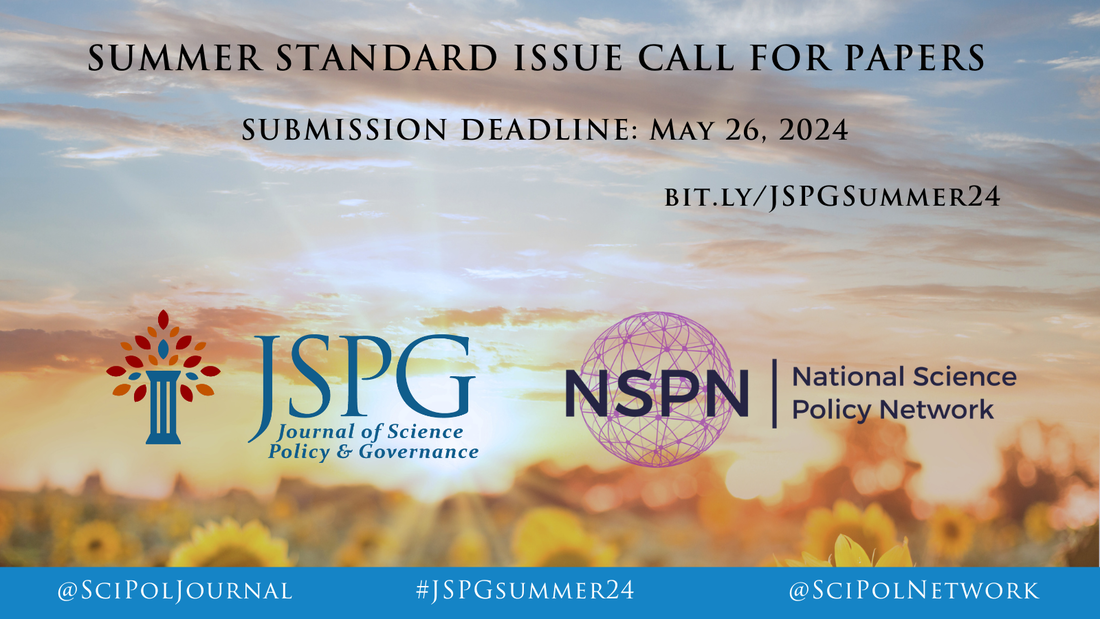
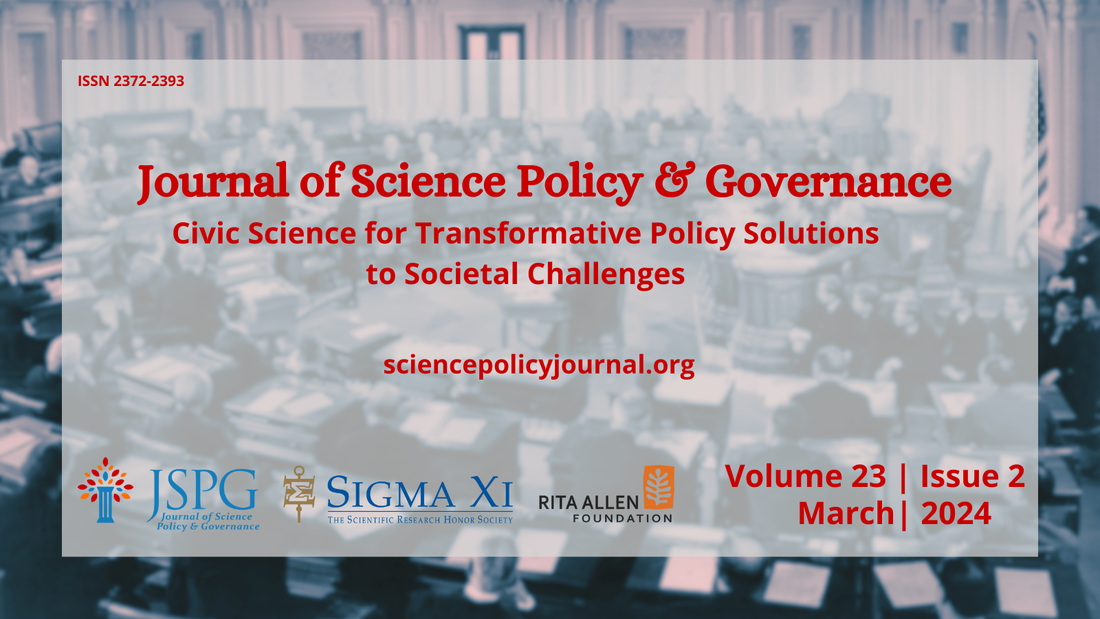
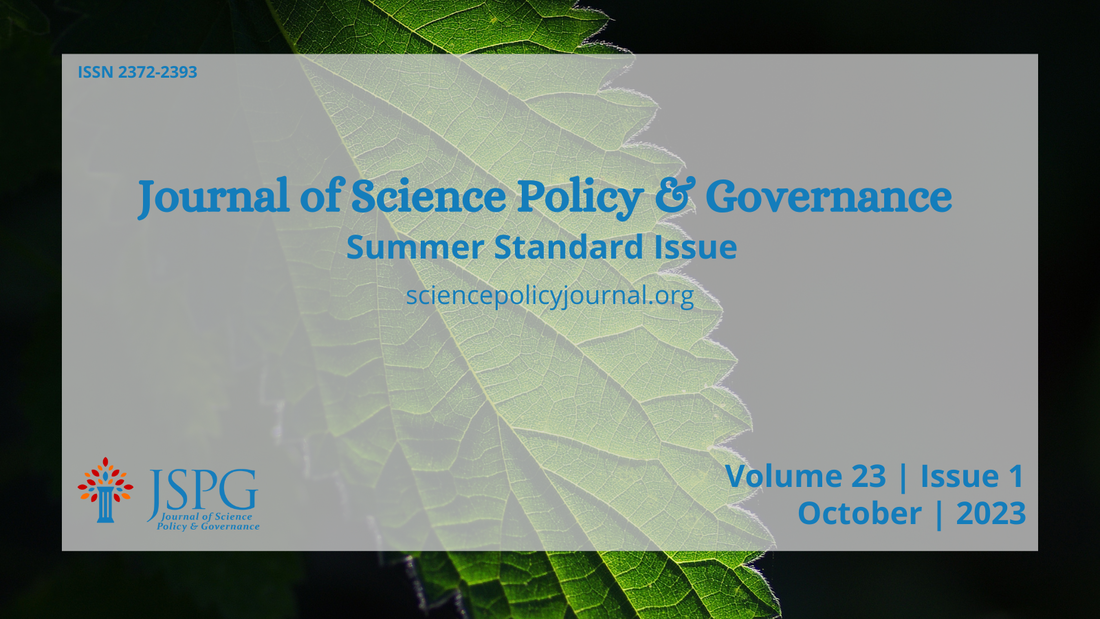
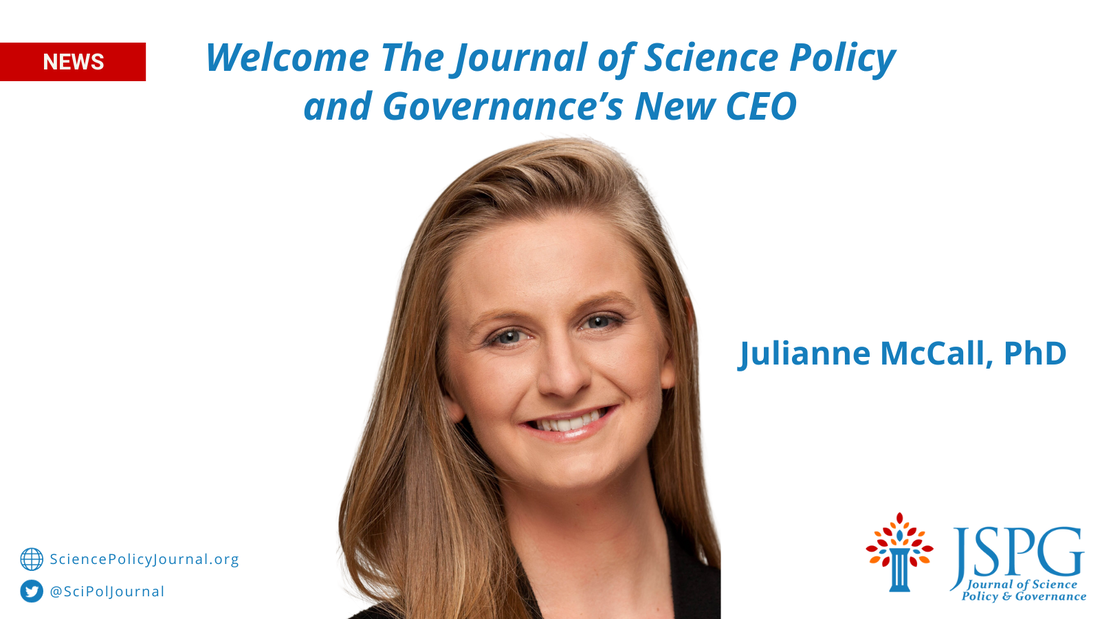
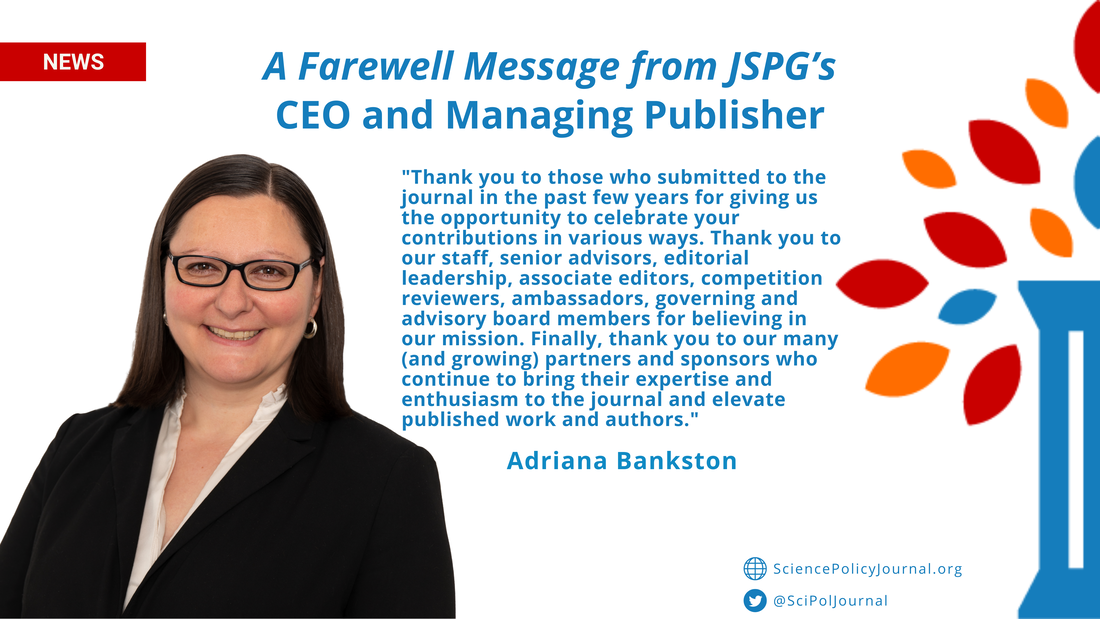
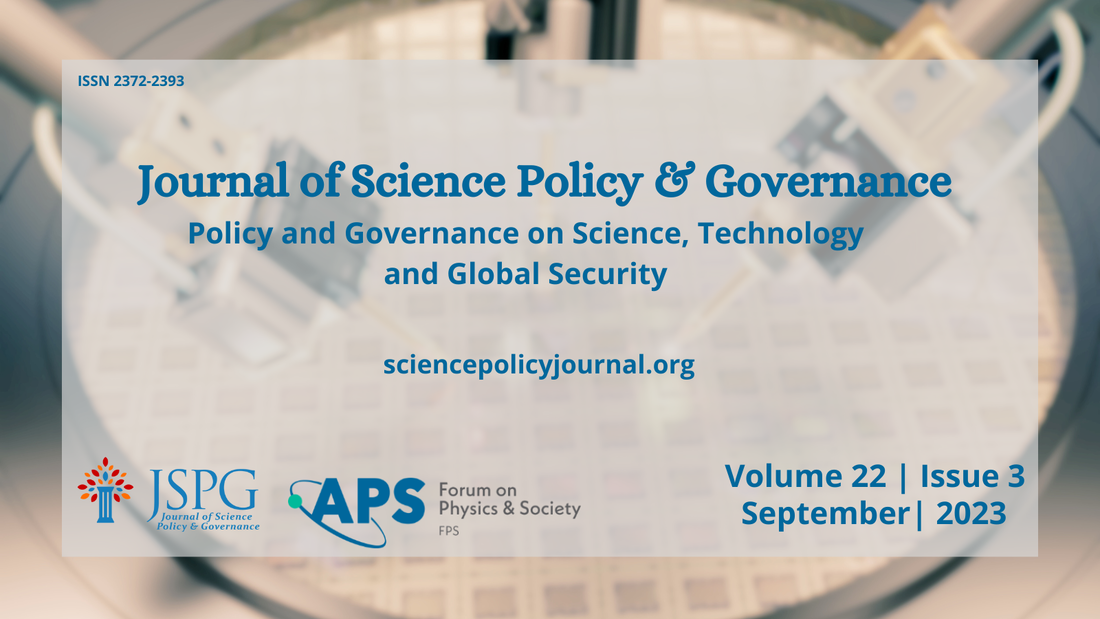
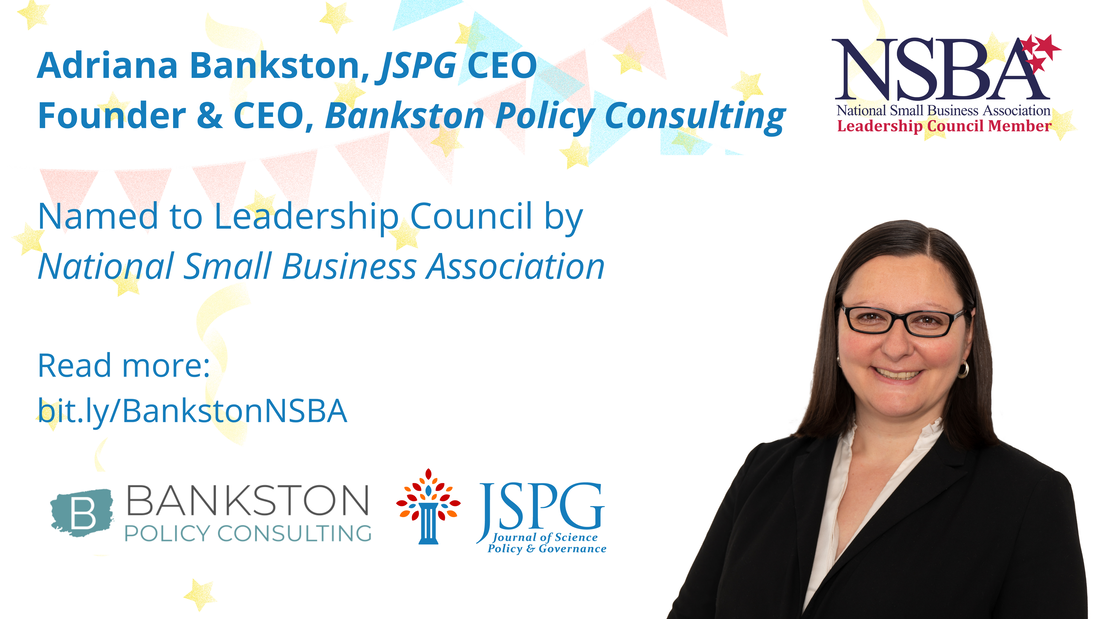
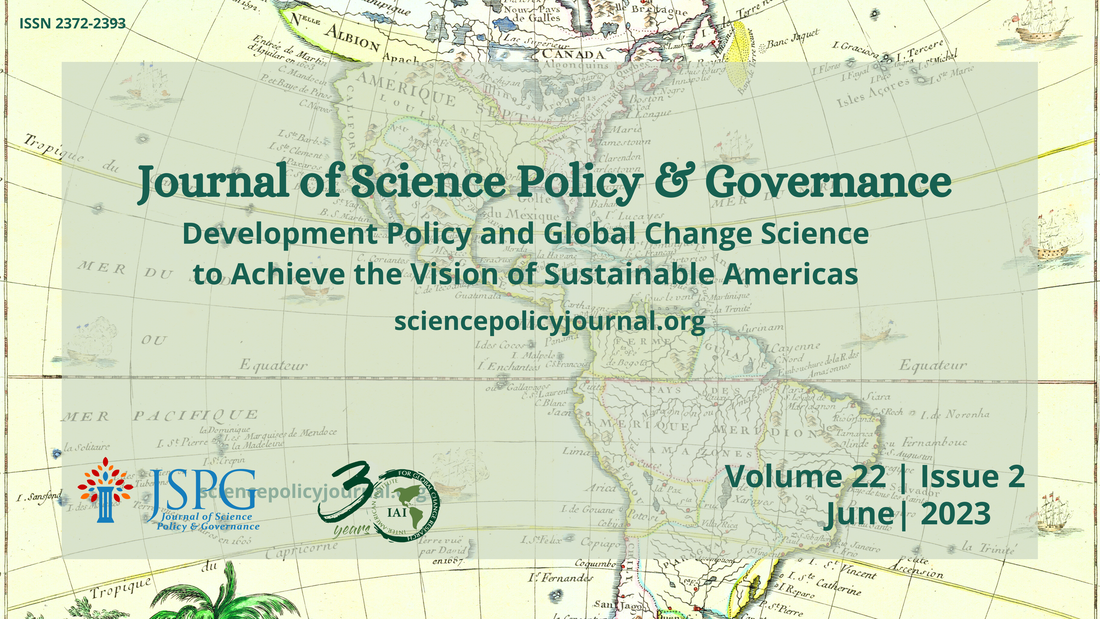
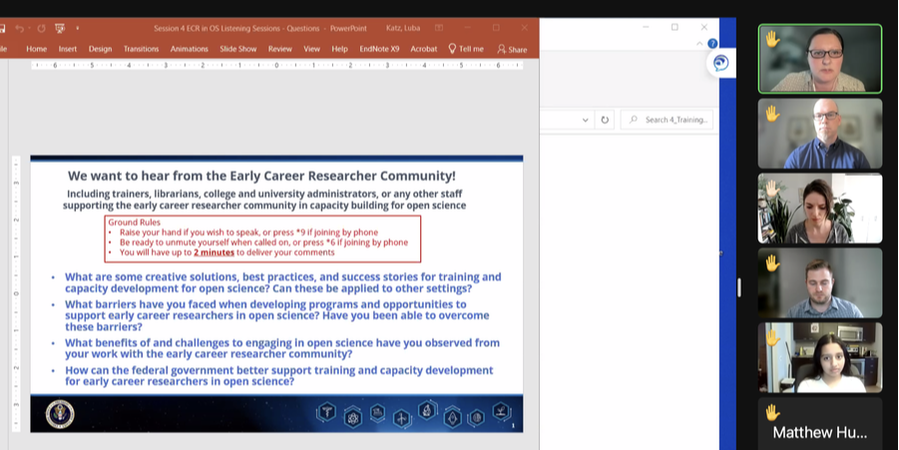
 RSS Feed
RSS Feed
